Two of my readers pointed me to Gaia well over a year ago, which led me to discover Lynn Margulis which led me to Jennifer.
My BC (Before Covid) understanding of investigative journalism was constrained to politics and political corruption. That’s what I thought investigative journalism was about. What is there to investigate after all? Turns out plenty.
My AC self knows better.
The Science™ is corrupt. The Medicine™ is corrupt. The [Fill in the blank]™ is corrupt because by capitalizing the “The” and making it an orthodoxy resistant to questions, challenge and change we end up with dogma and ideology in service of profit and power. That is corruption.
A very small number of people in the world have the curiosity, intelligence, courage, stubbornness, resilience and principled morality to poke at the leviathan and declare it both lying and naked.
Jennifer is one of those people. I’m so grateful that our paths have crossed.
A newly pregnant close friend was recently being sucked into the ultrasound vortex. It was Jennifer’s work that helped her make better, more conscious decisions about what she was going to let The Doctors™ do to her and her unborn.
The Medical Cartel is predatory. Without the work of people like Jennifer, its hunger and predation would remain invisible.
With thanks and gratitude to Jennifer Margulis.
Personal and Professional Background
1. Could you share a bit about your journey, both personal and professional, that has led you to where you are today in your career?
I gave birth to my oldest child in the hospital. Even though I was so excited to become a mother and was in excellent physical shape, the birth was very difficult.
I didn’t know better at the time and I thought my body had failed me. When I saw that even one Tylenol (a drug everyone should avoid) was marked up 6,000 percent (six thousand. That’s not a typo), I started to realize that the maternity care system was the problem, not me or my baby or my body.
That difficult birth experience led to a ten-year investigation of how for-profit medicine and corporate greed influence parenting in the United States, which culminated in the book, Your Baby, Your Way (Scribner, 2015).
2. Growing up as the daughter of Lynn Margulis, a renowned scientist, how did her work and perspectives influence your life and career choices?
Oh gosh yes! My mom was outspoken, hard-headed, very opinionated, and more energetic than anyone I’ve ever met.
She taught me that it’s more important to be accurate than popular, that science is a process of questioning that never ends, and that most humans think with their genitals, not with their brains.
With my mom in San Salvador at a scientific meeting in 1995.
Medical Freedom Advocacy and Vaccination
3. How did you transition into becoming an advocate for medical freedom, and what inspired this shift in your career?
I’ve always wanted to teach people who want to learn and I earned my Ph.D. in 1999 at Emory University, believing I would be a college professor. The idea of teaching at the university level appealed to me: you get paid to read, write, and talk and, once you have tenure, you get to take a semester off to do research every seven years.
But after I started having children—we have 4—I realized that I wanted to take care of them, not my students. So, I shifted to writing full-time, albeit on a flexible schedule.
I’ve always had a broad range of interests and I’ve written about elder care, home birth, episiotomies, breastfeeding, physics, iatrogenic health issues, the last herd of West African giraffes, the hippos of Ayorou, eco-friendly practices, and many other topics.
My mom was a biologist, my dad a chemist.
I grew up in a very science-oriented family.
I never thought to question vaccine necessity, safety, or efficacy.
Why would I? But in the hospital with my oldest, a nurse came at me with a needle already cocked and loaded with a hepatitis B vaccine.
I knew that hep B was sexually transmitted and that my husband and I were both hep B negative.
So, I told the nurse I wanted to talk to my baby’s doctor before giving that vaccine and she became enraged. She acted like I said I wanted to throw the baby in a dumpster.
I felt so guilty and worried!
Then the pediatrician actually told us it was a good thing we’d refused.
My husband and I realized we needed to research each and every vaccine and the infectious (or sexually transmitted) diseases they purported to protect against.
We started looking into it. I found out that, when it comes to vaccines and many other pregnancy and parenting practices, the medical establishment puts profits over people—time and time again.
I also discovered, to my shock and dismay, that our current childhood vaccination recommendations had no science to back it up.
So, I think what I’m trying to say is that my interest in vaccine safety and medical freedom come from a broader interest in the importance of personalized medicine, gentle parenting, and informed decision-making.
I’m also interested in supporting women’s choices in childbirth, helping couples meet their breastfeeding goals, and alternative schooling.
Each of us has a distinctive fingerprint.
Humans are unique.
There are better, perhaps even best, practices, sure.
But there’s no one-size-fits-all when it comes to the health and well-being of our species.
With freedom fighter Stella Emmanuel.
4. How has your stance on childhood vaccination and medical freedom affected your personal relationships and professional opportunities?
Such a good question. And such a painful one to answer. I spent ten years investigating how for-profit medicine harms women during pregnancy, childbirth, and the first year of life. That investigation yielded several 5,000-word articles for Mothering magazine, and provided the foundation for my book, The Business of Baby, which came out in April of 2013. My editor was fired before the book was published, just after letting the publisher know she was pregnant and planning on taking maternity leave. The book got the worst review I’ve ever read in The New York Times. The reviewer, a mom who had had ultrasounds at every doctor’s visit and gave birth abdominally, wrote about the book as if I’d pulled all the information out my left nostril.
After that phenomenally negative review (in which the readers were told NOT to buy or read the book), I was cancelled from the Diane Rehm show.
A little while later, I lost my position as a senior fellow at the Schuster Institute for Investigative Journalism at Brandeis. I was never given a clear explanation as to why. But they were upset, I think, because I went on a national radio show to defend vaccine choice.
I am pretty sure this is the reason because just before I was to be interviewed live, I got a phone call from the director telling me not to state publicly that I was a Schuster Fellow!
It appears that promoting individual decision-making in medicine goes against mainstream grain. So much so that journalists and book authors like me who want to start a new conversation about vaccines instead of simply repeating what everyone already believes are cancelled and censored.
I have many, many more stories in this vein. Go against the narrative that puts Big Money in the deep pockets of Big Pharma and be called a quack, a crackpot, and the like.
I’ve also been told by angry readers, as well as friends and family members, that I should “just shut up.” One reader said she hoped the cancer I had would “rot” me “from the inside out” and another said he hoped that my children would die.
Collaborations and Literary Contributions
5. Your collaboration with Dr. Paul Thomas led to the bestseller "The Vaccine-Friendly Plan". How did this partnership come about, and what has been the impact of the book on public discourse and policy?
I met Dr. Paul when we both were in Salem, Oregon testifying in front of a senate health committee against vaccine mandates. A lot of stupid things were said that day. On both sides. Forgive me for saying so but it’s true.
But there was this doctor—round-headed, boyish grin, hand in one pocket—who handed an inch-thick packet of information to each senator and spoke so intelligently. I was surprised I’d never met him. I tracked him down and we decided to write a book together. That book was The Vaccine-Friendly Plan.
We also wrote a second book together, called The Addiction Spectrum, by the way.
So many readers have told us that our vaccine book saved their marriage, or saved their children’s health. It’s not just a book about vaccines – it’s literally everything you need to know to keep your children safe and healthy, from skin-to-skin contact right at birth to teenage nose piercings.
I think our book has had, and continues to have, a profound effect on public discourse. If every parent in America read the book, we would literally see the rates of autism, asthma, type 1 juvenile diabetes and other toxin-induced chronic health problems plummet.
Another key aspect to this besides following a gentler, more evidence-based vaccine schedule (or delaying vaccines indefinitely) is avoiding infant Tylenol and antibiotics.
An 88-year-old reader, Diane, showing off her copy of Jennifer Margulis’s bestselling book, co-authored with Dr. Paul Thomas, The Vaccine-Friendly Plan.
6. In your work, you have addressed the issue of immediate versus delayed cutting of the umbilical cord. What insights can you share from your research on this topic?
Thank you for asking. The blood in the baby’s cord is very valuable. Which is why many businesses will offer blood-banking of your infant’s cord blood.
That blood is the baby’s, though.
It’s really imperative that we don’t cut the cord after a baby is born until the cord stops pulsating. (It’s also fine to wait much longer than that, several hours or even several days.)
American doctors are increasingly on-board with delayed cord clamping because of the growing body of scientific research showing how beneficial it is to wait to cut the cord. But now what they do is set a stopwatch for two minutes.
One hundred and twenty seconds. And then—snipola!
And they’re quite proud of themselves for their patience!
What they need to do—doctors and midwives alike—is really cut the rush. Which means waiting as long as it takes for the baby to get all of her blood back, not just two minutes.
7. Obstetric ultrasounds are a routine part of prenatal care. Based on your investigations, what should expecting parents be aware of regarding the use and implications of ultrasounds?
Wombs don’t come with a view for a reason. Unless a pregnant mama and her partner plan to abort, there’s no reason to do any routine ultrasounds in the absence of other clinical data indicating a problem.
I explain as much in this Substack post, which has generated a fascinating discussion. And I devote a chapter of my book, Your Baby, Your Way (which is the paperback and revised version of The Business of Baby) to obstetric ultrasounds.
2020-2024
8. Reflecting on the last four years of the global “pandemic,” how do you believe the events and responses have influenced the public's perspective on medical freedom and the importance of informed consent?
The last four years have been so difficult for so many people, especially teenagers and young adults. They were robbed of so much: proms, graduation ceremonies, hugging their grandparents. So many people—including many in my own family—went along with the narrative without ever stopping to think.
People were scared. They acted out of fear.
The blind conformity. The trust in big pharma. The suspension of common sense. The replacement of science with $cience or, as I like to put it sometimes, Psyience. All of that has been truly awful.
Yet at the same time some people have been realizing that we were fed lie after lie after lie. That 493 BILLIONAIRES were minted during COVID. That human beings need human contact. And that many of the measures implemented to “keep people safe” actually hurt all of us. Children’s IQs and language abilities declined. Suicide rates went up. The amount of anxiety and despair our young people are feeling now, post COVID, is unprecedented.
The CDC is now making unbelievably aggressive recommendations to give mRNA vaccines to babies as young as six months of age and to vaccinate children against COVID, which has morphed into a mild cold, every year. I am cautiously optimistic that this will give parents pause and help all Americans realize the importance of medical freedom. I don’t think it has happened yet. For many it’s just too painful not to go along with the narrative. But we have seen an increase in vaccine hesitancy. In my mind, that’s a good thing.
9. What have been some of the most significant lessons you've learned regarding health policy, individual rights, and the relationship between government and personal health decisions?
I already knew that our government is being run by big business interests. This is why we don’t see government-sponsored billboards promoting breastfeeding. Breasts, quite simply, are bad for business. But I didn’t realize how manipulative the government can be, how easy it is to dupe doctors and other medical professionals, and how quickly people will throw common sense out the window when they are in a fear state.
In terms of lessons learned … there are so many that I’m not sure where to start. Masks are not healthy and we should not be inhaling our exhale. We humans are social creatures and we must be in contact with each other. Making humans fear hugging and kissing and being together will never help our species be healthy.
10. With the recent media focus on measles outbreaks, what are your thoughts on the current measles "scare" and its impact on public health policies?
Thanks for asking. I wrote about the measles outbreak recently on Substack. You can find a detailed answer to this question here:
Measles, Oh My! - by Jennifer Margulis - Vibrant Life (substack.com)
Reflections and Personal Insights
11. Looking back, what advice would you give to your younger self at the beginning of your career in science journalism and advocacy?
Be bold. Be honest. Always do interviews in person when possible. Listen. Ask follow up questions. And don’t be afraid to ask the same question as many times as you need to in order to get an honest answer.
I’d also tell my younger self that it is absolutely worth it to fly to another country (like Iceland or Norway) to compare how different countries do things.
Even if it is financially very difficult and the result is only three paragraphs of text, which was the case in my book, Your Baby, Your Way, these kinds of trips are so so worthwhile.
I have more advice for myself. Not just my younger self but my self now. Ha ha. Giving advice is so easy! Following it is much harder. Are you sorry you asked?
Don’t be afraid to ask for help. Even Olympic athletes have coaches.
It's okay to procrastinate. Fields must lie fallow from time to time.
Just like it takes a village to raise a child, according to the cliché anyway, it takes a village to write a book. No matter how many books you’ve written, you still need your village.
12. What projects are you currently focusing on, and what themes or issues are you passionate about addressing next in your work?
Many projects! I’m currently at work on a book about my mom’s science and her life. Her work is in every biology textbook in the world—often (these days) without credit given to her. But when she was a young scientist, she was constantly ridiculed for “going too far,” and “being nonsensical.” Why wouldn’t she stop promoting unorthodox ideas, establishment scientists asked her in total exasperation. Because I’m right, she responded.
I’m also working on an article on homebirth, another on tips for taking a child with autism to the dentist, and a follow-up piece on a doctor who would not comply and is currently facing prison for giving his patients the option not to get the COVID-19 vaccine.
I have some projects on the back burner that I’m hoping to bring to the front of the stove as soon as possible (um. See my answer to your 12th question).
13. How do you envision the future of medical freedom and informed consent in healthcare, given the current trends and challenges?
I think we need a new paradigm.
We have to all walk with our feet away from conventional medicine and demand better.
There are so many healing modalities that can improve our health and help us in our lives but they are all so expensive.
As a writer and editor with a disabled husband who supports a large family on her earnings alone, I get discouraged by how much it costs to get a weekly massage, say, or go for an acupuncture treatment.
We must find a way to support alternative practitioners, promote healthy eating, get glyphosate out of our food and our waterways, and make sure everyone has access to organically grown fresh food.
If you know how to do this, please tell me! I’m not sure how to change a broken system but I know we have to try. I also know that shedding light in dark places and exposing abuse and government overreach helps us all better understand what’s really going on and how to fix it.
14. For readers and followers who want to stay informed about your ongoing projects and perspectives, what are the best ways to stay connected with your work?
The best way is to sign up for my Substack, Vibrant Life. Also to follow me on FacePitooey. I’m also on LinkedIn and Twitter though I don’t use those platforms as often. And folks can come read the articles on my website as well.
You can also get to know me better by reading one of my books. Most are available from the public library.
Thank You for Being Part of Our Community
Your presence here is greatly valued. If you've found the content interesting and useful, please consider supporting it through a paid subscription. While all our resources are freely available, your subscription plays a vital role. It helps in covering some of the operational costs and supports the continuation of this independent research and journalism work. Please make full use of our Free Libraries.
Discover Our Free Libraries:
Unbekoming Interview Library: Dive into a world of thought-provoking interviews across a spectrum of fascinating topics.
Unbekoming Book Summary Library: Explore concise summaries of groundbreaking books, distilled for efficient understanding.
Hear From Our Subscribers: Check out the [Subscriber Testimonials] to see the impact of this Substack on our readers.
Share Your Story or Nominate Someone to Interview:
I'm always in search of compelling narratives and insightful individuals to feature. Whether it's personal experiences with the vaccination or other medical interventions, or if you know someone whose story and expertise could enlighten our community, I'd love to hear from you. If you have a story to share, insights to offer, or wish to suggest an interviewee who can add significant value to our discussions, please don't hesitate to get in touch at unbekoming@outlook.com. Your contributions and suggestions are invaluable in enriching our understanding and conversation.
Resources for the Community:
For those affected by COVID vaccine injury, consider the FLCCC Post-Vaccine Treatment as a resource.
Discover 'Baseline Human Health': Watch and share this insightful 21-minute video to understand and appreciate the foundations of health without vaccination.
Books as Tools: Consider recommending 'Official Stories' by Liam Scheff to someone seeking understanding. Start with a “safe” chapter such as Electricity and Shakespeare and they might find their way to vaccination.
Your support, whether through subscriptions, sharing stories, or spreading knowledge, is what keeps this community thriving. Thank you for being an integral part of this journey.




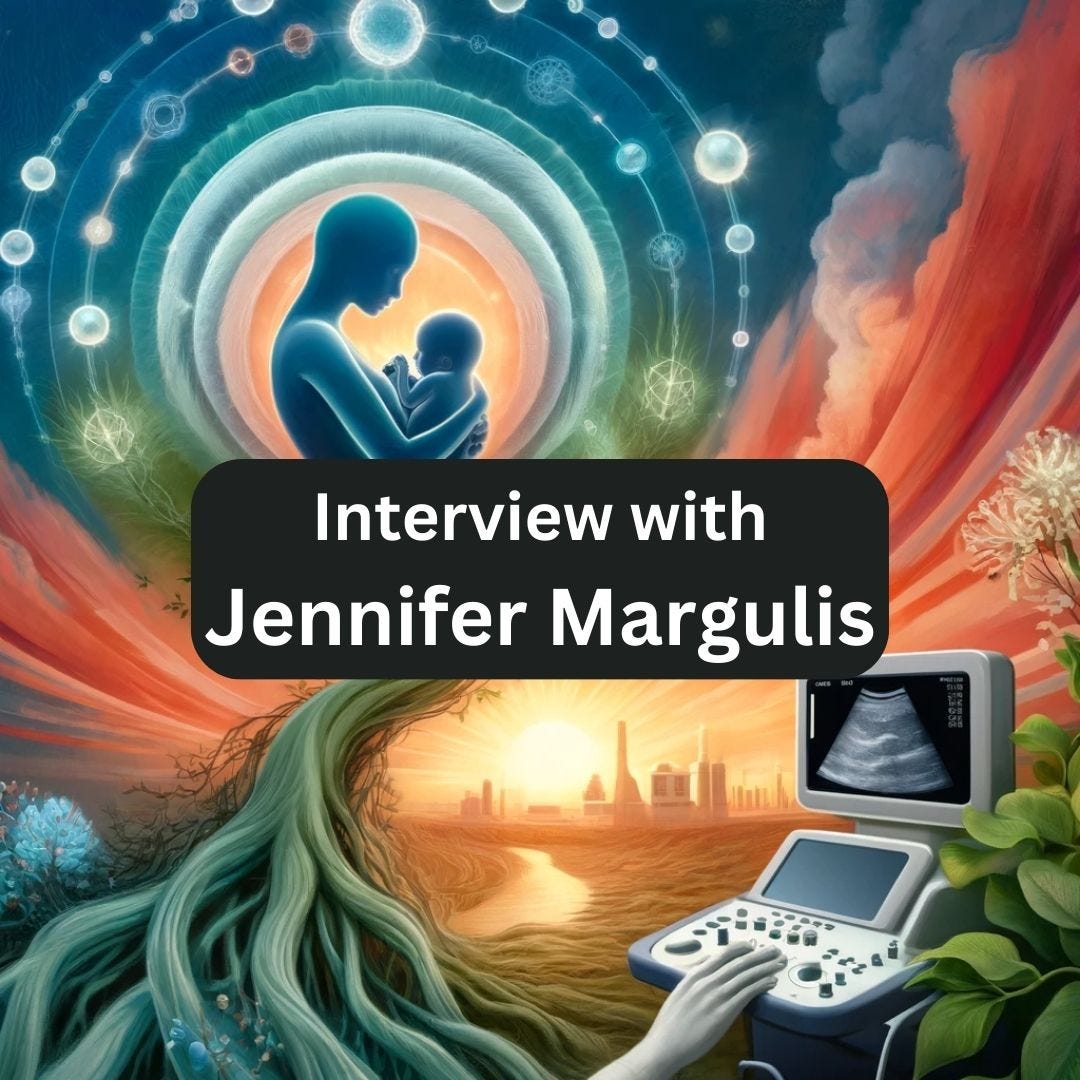
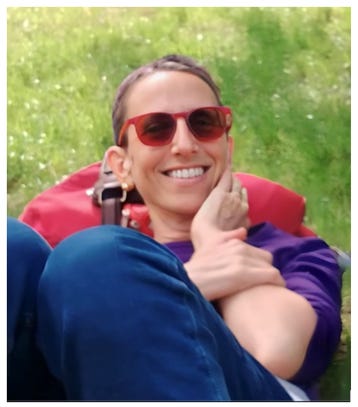
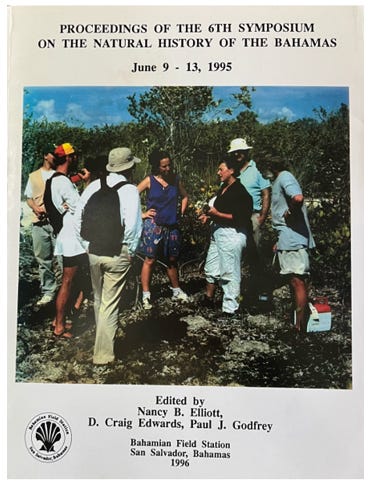
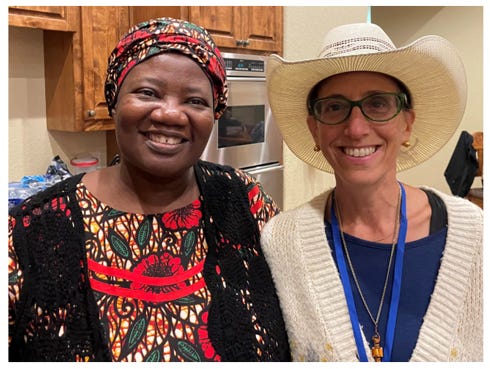
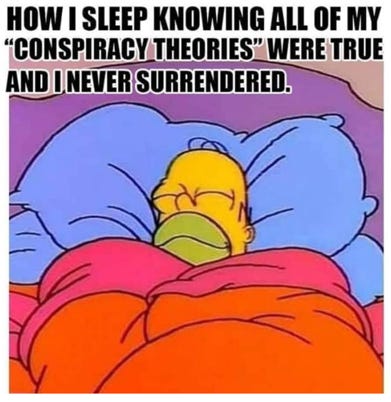
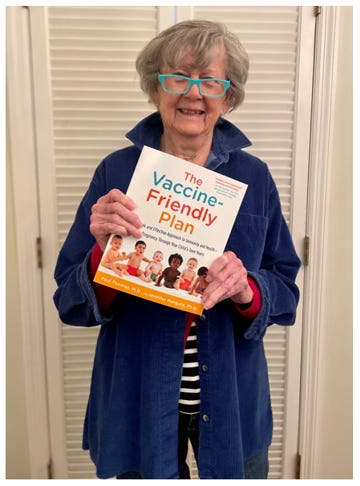
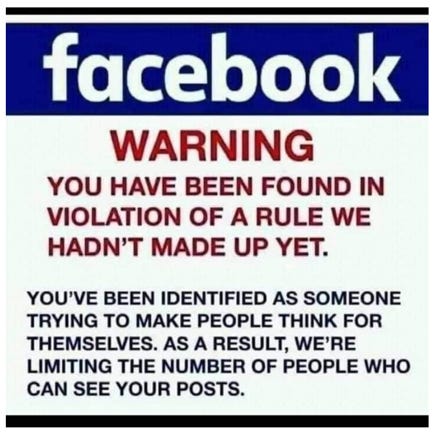
Thank you both for this fantastic interview. I'm a great fan of your work, Jennifer, and horrified at the abuse and rejection you have experienced. As a mother, and health-researcher I resonate with a lot of your experience, and am happy to take your advice to heart! In admiration, heartfelt gratitude and with best wishes for your projects and life 💕🙏
Homer was truly a stoic, eh? Great work on all the interviews! Wow you've really been banging out some amazing work.